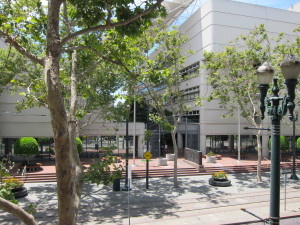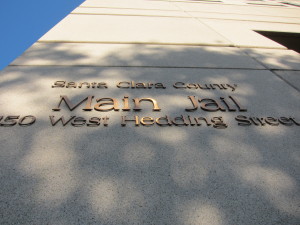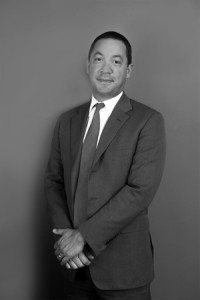
By Sharon Simonson
A U.S. magistrate judge has warned the U.S. departments of Justice and Homeland Security that he would recommend dismissal of criminal charges against Chinese Professor Hao Zhang if federal immigration authorities sought to detain Zhang again in relation to alleged visa violations.
U.S. Magistrate Judge Nathanael Cousins said the federal government could pursue immigration charges at a later time. But, relying on a July 23 ruling by the U.S. Ninth Circuit Court of Appeals, Cousins said that during Zhang’s preparations for trial for conspiracy, trade-secret theft and spying to benefit the Chinese government, immigration authorities could not detain him with a stated goal of deportation even as the U.S. Justice Department proceeded toward trial.

“If the government places Zhang back in immigration detention, thereby jeopardizing this court’s ability to try him, then this court will craft an appropriate remedy, which will likely be a recommendation to dismiss the indictment,” Cousins ruled July 28.
Zhang is accused of stealing trade secrets and conspiring to steal trade secrets for his own benefit and the Chinese government’s from Avago Technologies Ltd. and Skyworks Solutions Inc., two U.S. semiconductor companies with Silicon Valley ties.
Federal law enforcement agents arrested him May 16 at Los Angeles International Airport as he arrived from China with his wife. He was traveling on a one-year tourist-business entry visa issued April 15 by the U.S. State Department. He was evidently unaware that a sealed arrest warrant had been issued April 1 for him and five other Chinese citizens, including two men who studied electrical engineering at the University of Southern California at the same time as Zhang.
Cousins had ordered Zhang released from federal custody on July 8 after overseeing a detention hearing that spanned four court sessions over a period of weeks. Federal prosecutors argued that the risk of flight was too high for Zhang to be out of custody. His attorneys said that he could not receive a fair trial if he were in jail, in part because the proceedings may last years based on previous, similar prosecutions.
To sanction Zhang’s release, Cousins required a $500,000 bond secured by the equity in four Tampa, Fla., homes owned by the aunt of the man who is married to Zhang’s sister and $225,000 in U.S.-located retirement and investment savings benefitting Zhang and his wife. That includes funds in a 401(k) retirement account that Zhang accrued during his Skyworks employment, which ended in 2009.

Cousins also ordered that Zhang be confined to a Mountain View home where he would be electronically monitored and prohibited from travel other than for medical care and visits to his attorneys and the courthouse.
His defense attorneys had expected that he would be released July 8. Instead, he was kept overnight at the Santa Clara County Main Jail, where he had been since the end of May. The next morning, jail authorities turned him over to the U.S. Marshals, who then delivered him to U.S. Immigration and Customs Enforcement agents, who took him to the Yuba County Jail. After spending the weekend in Yuba County, Zhang was taken to the San Francisco office of U.S. Customs and Border Patrol on July 13, where he was ordered deported.
“The government has undertaken a series of calculated actions in this case, which threaten Dr. Zhang’s constitutional rights and the authority of this Court,” Zhang attorney Daniel Olmos of Nolan Barton Bradford & Olmos said in a July 24 memorandum to Magistrate Cousins.
As of early afternoon July 29, based on Cousins’ orders, Zhang had been released from federal custody and was traveling to the Mountain View home where he is expected to live for at least the next several years.
Chinese Professor Zhang Hao Wins Release on Bail in U.S.
July 30, 2015 (Silicon Valley, CA) – Dr. Zhang Hao, a professor from China’s Tianjin University who was indicted by the U.S. Department of Justice under the Economic Espionage Act, has been released by the Customs and Border Protection (CBP) of the U.S. Department of Homeland Security.
Professor Zhang’s release comes three weeks after Magistrate Judge Nathanael M. Cousins of the U.S. District Court for the Northern District of California first ordered Professor Zhang’s release after careful consideration and imposing certain bail conditions. After Judge Cousins ordered Professor Zhang’s release, CBP took custody of Professor Zhang and detained him in California’s Yuba County Jail.
At a hearing on July 28, Judge Cousins ordered Professor Zhang “released with the expectation that his removal or deportation from the United States will be deferred until the conclusion of his criminal case.”
The Court also stated that if the government places Professor Zhang back into detention at some later time, then “this court will craft an appropriate remedy, which will likely be a recommendation to dismiss the indictment.”
Professor Zhang was released by CBP the following day.
Under the terms of Professor Zhang’s release, he will remain in the United States, with additional conditions and reporting requirements monitored and supervised by the Court’s Pretrial Services Office.
Professor Zhang and his family are grateful for his release. He will remain in the U.S. pursuant to the bail conditions set forth by Judge Cousins. He looks forward to his day in court and is confident that once the facts are revealed, he will be exonerated.
Professor Zhang is represented by the law firms of Alston & Bird LLP and Nolan, Barton, Bradford & Olmos, LLP. He is represented at the CBP by the law firm of Van Der Hout, Brigagliano & Nightingale, LLP.
About Alston & Bird
Alston & Bird is a leading national law firm. The firm’s core practice areas are intellectual property, complex litigation, corporate and tax, with national industry focuses that include financial services, technology, health care, manufacturing, life sciences and energy. The firm has built a reputation as one of the country’s best employers, appearing on FORTUNE magazine’s “100 Best Companies to Work For” list for 16 consecutive years, an unprecedented accomplishment among law firms in the United States. The firm has offices in Atlanta, Brussels, Charlotte, Dallas, Los Angeles, New York, Research Triangle, Silicon Valley and Washington, D.C.
For more information on Alston & Bird, please visit http://www.alston.com.
###